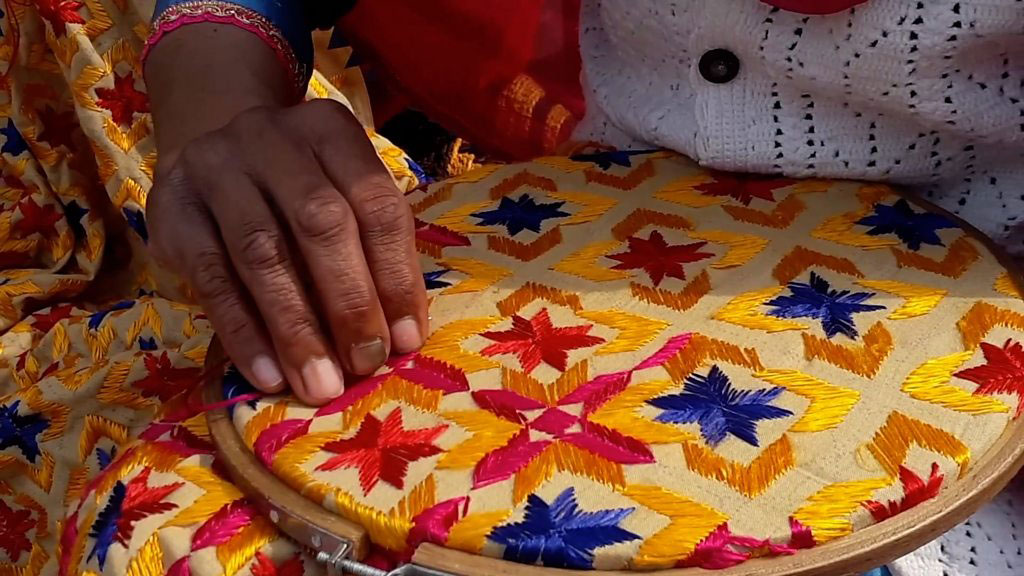How much do most of us truly know about all Indian handicrafts? What we do know is that they’re colourful, elaborate, mostly handmade, and a tradition that artisans and their families have passed down from generations. However, the fact remains that most of India’s rich cultural heritage is steadily declining because either people don’t patronise them because they’re far more expensive than the machine-made textiles, or are unaware that such handicrafts exist.
However, there are those who fight to keep traditions alive, and among them is Manpreet Kaur, the one leading the women behind the revival the almost forgotten handicraft, Phulkari. Phulkari is a handmade embroidery that features intricately woven floral patterns in bright colours.

And how exactly is Kaur behind the resurgence of this lost art? By not only educating younger generations on the importance of this craft, but by turning this small scale trade into a financially viable business. In an exclusive feature by BBC, Kaur opens up about why she started, and how it’s going.
In 2015, Kaur, along with five other women, formed a group to popularise the craft. She says, “Phulkari represents love. I wanted our city (Patti in Punjab), to become famous for saving Phulkari.” From a cluster of five in 2015, they grew to a larger group as more and more women from neighbouring villages joined in. Soon, they were doing enough work to sell their handmade craft within Punjab and other states.
“My grandmother and my mother also made Phulkari, but things became difficult for them after people began buying machine-made Phulkari because it was cheaper,” Kaur explains. Fortunately, people now prefer buying handmade handicrafts. Balwinder Kaur, another woman from the group, says, “We are now able to run our home and also pay for our children’s expenses.”
Images Via: Screengrabs from the BBC feature